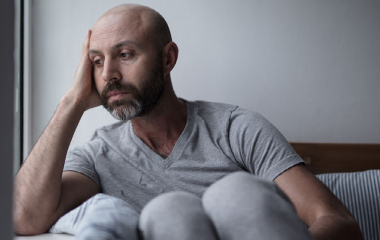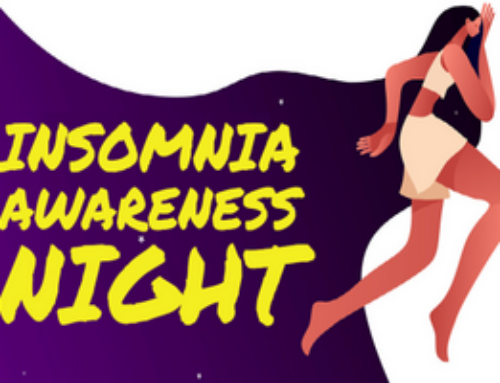Insomnia can make you feel like your mind is racing out of control. A revealing new study explains why your brain may be unable to put the brakes on your thoughts. It links the problem to low levels of a brain chemical.
The chemical is called gamma-aminobutyric acid. GABA is the most common inhibitory transmitter in the brain. It is the brain’s “brake fluid.” GABA decreases or stops the transmission of nerve impulses.
A new study shows that GABA levels are reduced by 30 percent in adults with chronic primary insomnia. The study was published in the Nov. 1 issue of the journal Sleep.
“GABA is reduced in the brain of individuals with insomnia, suggesting overactivity is present,” said principal investigator Dr. John Winkelman.
He explained that low GABA levels create an imbalance of brain activity. This “may lead to an inability to shut down waking signals in the brain,” he said.
If your GABA levels are low, then your mind can’t slow down. It may race forward at full speed even when it is time to sleep.
An overactive mind is a key feature of psychophysiological insomnia. At bedtime you are unable to stop thinking and worrying. Your body may be ready for sleep, but your mind remains alert. This state of “hyperarousal” can make it hard for you to fall asleep.
Most people with insomnia have “secondary” insomnia. It occurs along with another medical problem, mental illness or sleep disorder. It also may result from the use of a medication or substance.
In contrast primary insomnia is unrelated to another health problem. Winkelman estimates that about 25 percent of people with insomnia have primary insomnia. The study only links low GABA levels to long-lasting, primary insomnia.
All participants in the study had been suffering from primary insomnia for more than six months. The average duration of their symptoms was about 10 years.
Winkelman said the GABA connection affirms that primary insomnia is a legitimate disorder.
“Recognition that insomnia has manifestations in the brain may increase the legitimacy of those who have insomnia and report substantial daytime consequences,” he said.
He explained that insomnia can affect your energy, concentration and mood. It also increases your risk of depression.
One solution for the problem of primary insomnia is the use of a hypnotic medication. The short-term use of a sleeping pill can help break the cycle of sleepless nights. The study notes that many of the most effective sleeping pills increase activity at the GABA neurons.
Another treatment option is cognitive behavioral therapy. CBT helps you learn how to correct attitudes and habits that hinder your sleep. Winkelman said that many of these bad habits develop as people try to cope with chronic insomnia.
Help for insomnia is available at sleep disorders centers that are accredited by the American Academy of Sleep Medicine.





